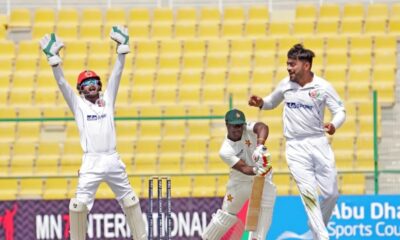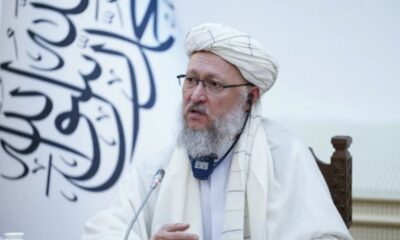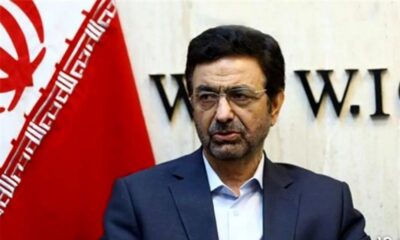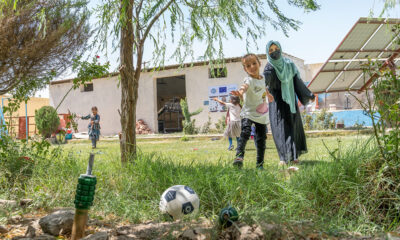Regional
Pakistan picks new chief of powerful spy agency ISI
The reported move comes as the political role of the agency faces intense scrutiny. One former ISI chief has been arrested for supporting the political cause of jailed former prime minister Imran Khan, who, in turn, alleges that the agency, under current chief Naveed Anjum, is being used against him.
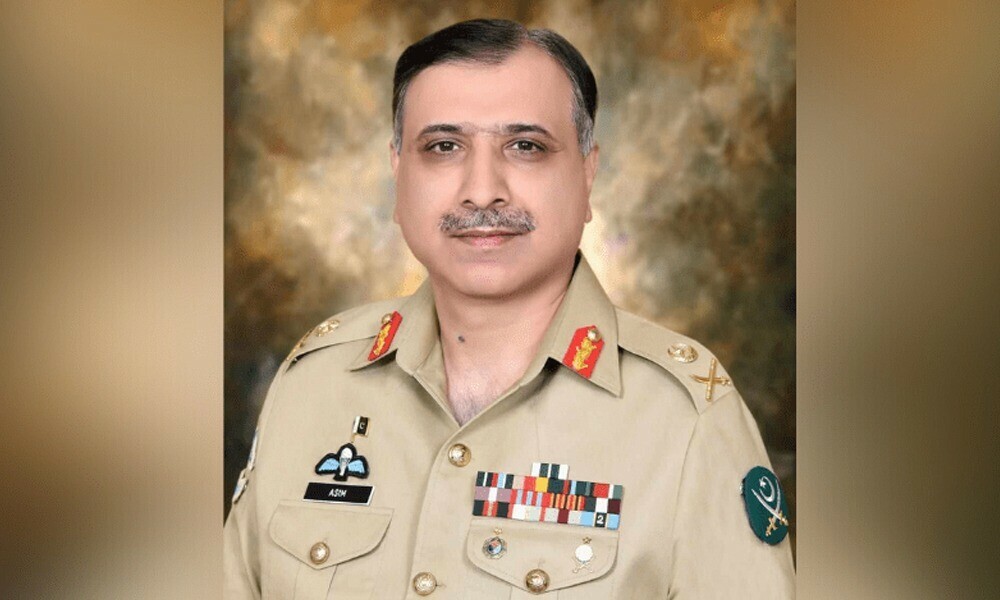
Pakistan has picked Lieutenant-General Muhammad Asim Malik as the new director general of the Inter-Services Intelligence (ISI), its top spy agency, Reuters reported citing a security source and a local TV channel, the first change in the key post since 2021.
The Pakistani military's public relations department did not immediately respond to a request for comment, Reuters reported.
The reported move comes as the political role of the agency faces intense scrutiny. One former ISI chief has been arrested for supporting the political cause of jailed former prime minister Imran Khan, who, in turn, alleges that the agency, under current chief Naveed Anjum, is being used against him.
Several senior judges have also alleged, in a letter to the chief justice that was published in local media, that ISI agents were applying pressure on them to decide cases against Khan.
The source with knowledge of the move told Reuters that Malik, currently serving as the army's Adjudicate General and a graduate of Fort Leavenworth in the United States, would take over on Sept. 30 as the chief of the ISI.
Local television channel Geo News also reported the same.
The post of ISI director general, usually a serving military officer, is one of the most powerful positions in Pakistan, at the intersection of domestic politics, the military and foreign relations.
While the ISI chief technically reports to the prime minister, he is controlled by Pakistan's army chief.
A standoff between Khan and the army over the appointment of the ISI chief in 2021 is believed to have led to a falling out with top generals, which was followed by his ouster from the premiership months later.
Pakistan's army, which denies pressurising judges or any role in politics, ruled Pakistan for more than three decades from 1958 and continues to exercise control over key areas of governance in the country.
Regional
Four killed, 32 injured in explosion in Pakistan
The banned Balochistan Liberation Army claimed the attack in a post on social media, while the Pakistani authorities have not confirmed the attack.
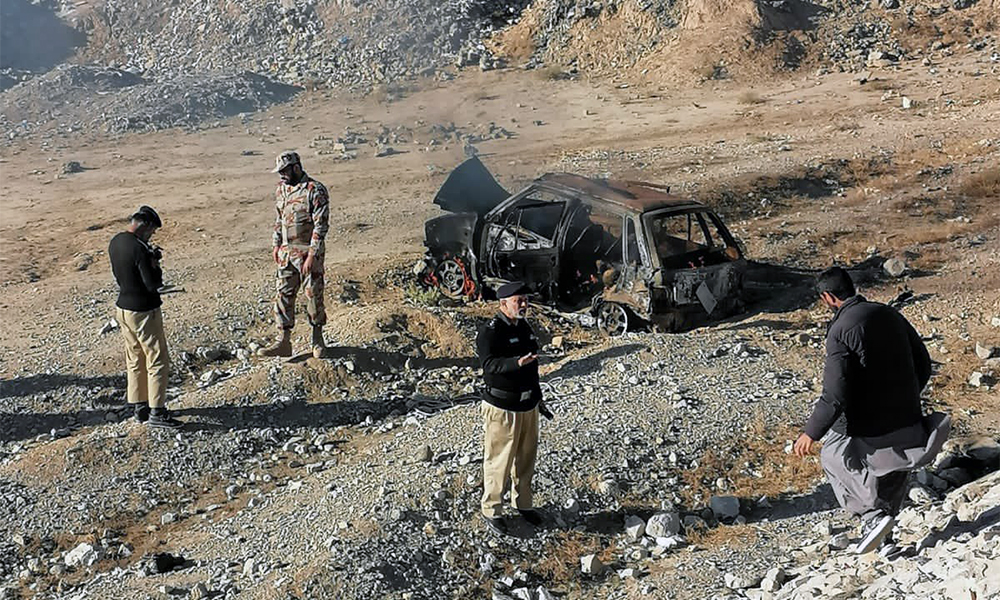
At least four people were killed and 32 others injured in an explosion in Pakistan's southwestern Balochistan province on Saturday, local media and officials said.
The incident happened in Turbat district of the province, where a convoy was attacked and a bus in it was struck during the assault, officials told Xinhua on condition of anonymity.
A senior police officer and his family members were injured in the attack and shifted to a nearby hospital, local reports said.
The banned Balochistan Liberation Army claimed the attack in a post on social media, while the Pakistani authorities have not confirmed the attack.
Regional
Syria to include all sectors in new government, foreign minister says

Syria's foreign minister has told Saudi Arabian officials that the new leadership in Damascus wants to set up a government involving all parts of Syrian society following the overthrow of Bashar Al-Assad last month.
Minister Asaad Hassan Al-Shibani was making the first foreign trip by a member of Syria's new administration as Western and regional powers seek signs on whether it will impose strict Islamic rule or show inclusivity in government, Reuters reported.
Al-Shibani and Syria's defence minister met with Saudi Defence Minister Prince Khalid bin Salman in Riyadh on Thursday.
"Through our visit, we conveyed our national vision of establishing a government based on partnership and efficiency that includes all Syrian components, and working to launch an economic development plan that opens the way for investment, establishes strategic partnerships, and improves living and service conditions," Al-Shibani said in a post on X.
Since ousting Assad on Dec. 8, Islamist rebels led by Hayat Tahrir al-Sham (HTS) have sought to reassure Arab countries and the international community that they will govern on behalf of all Syrians and not export Islamist revolution.
HTS was al Qaeda’s Syrian affiliate until it broke off ties in 2016.
Saudi Arabia backed the rebels who fought Assad at the onset of the Syrian civil war.
More recently, Riyadh had embarked on a path of normalising ties with the Assad government, paving the way for Syria to return to the Arab League in 2023, in an effort to reduce Iranian influence in the country and to stem the flow of drugs including the methamphetamine captagon.
A Saudi source close to the government told Reuters the kingdom was committed to safeguarding the peace in Syria and that fostering stability was a top priority.
"At this critical juncture, our focus is on delivering essential humanitarian aid to the people of Syria, and we are exploring opportunities for expanded assistance in collaboration with regional partners," the source added.
Regional
Palestinian Authority suspends broadcast of Qatar’s Al Jazeera TV temporarily

The Palestinian Authority temporarily halted operations of Qatar's Al Jazeera television in the territory including its broadcasts, citing the network's dissemination of "inciting material," the Palestinian news agency WAFA said on Wednesday.
The culture, interior and communications ministers made the decision jointly because the channel broadcast material that was "deceiving and stirring strife," WAFA said without providing details on the subject matter, Reuters reported.
The order said the decision was temporary but did not specify an end date.
The Palestinian Authority criticised Al Jazeera last week over its coverage of the weeks-long standoff between Palestinian security forces and militant fighters in the Jenin camp in the Israeli-occupied West Bank.
Al Jazeera denounced Wednesday's decision as "an attempt to discourage it from reporting spiraling events in the occupied territories," according to a statement.
It called on the Palestinian Authority to rescind the decision and allow its journalists to report freely from the West Bank without intimidation.
The decision was not expected to be implemented in Hamas-run Gaza where the Palestinian Authority does not exercise power.
Fatah, the faction that controls the Palestinian Authority, said the broadcaster was sowing division in "our Arab homeland in general and in Palestine in particular". It encouraged Palestinians not to cooperate with the network.
The Israeli military in September raided Al Jazeera's bureau in the West Bank city of Ramallah and ordered it shut.
Israel in May issued an order barring the channel from operating and broadcasting in the country, saying it posed a threat to Israeli security. A court subsequently upheld the ban.
-

 Latest News3 days ago
Latest News3 days agoMinistry: $1 billion invested in Afghanistan’s poultry production sector
-
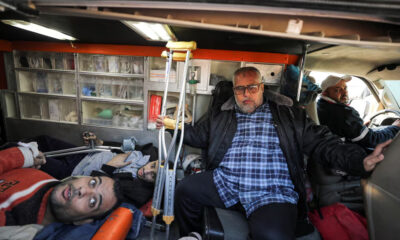
 Regional5 days ago
Regional5 days agoU.N. body accuses Israel of destroying Gaza healthcare
-
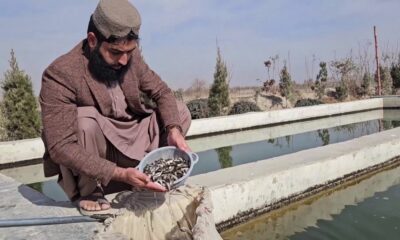
 Latest News3 days ago
Latest News3 days agoDeclining water levels affect 50 percent of fish farms in Kandahar
-
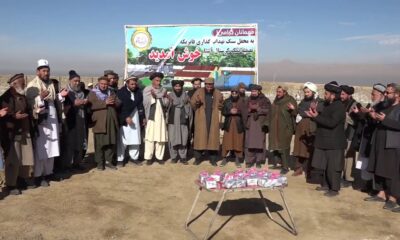
 Latest News3 days ago
Latest News3 days agoSalt refinery plant to be built in Takhar province
-
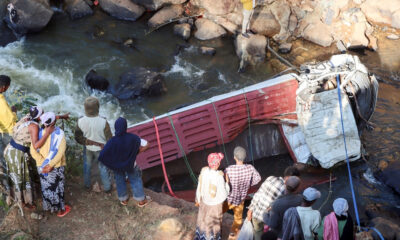
 Latest News5 days ago
Latest News5 days agoAt least 71 killed in Ethiopia road accident
-

 World4 days ago
World4 days agoUS vet formerly deployed in Afghanistan rams truck into New Orleans crowd, killing 15
-

 Sport4 days ago
Sport4 days agoAfghanistan set for second test against Zimbabwe in Bulawayo
-

 Regional4 days ago
Regional4 days agoUS imposes sanctions on entities in Iran, Russia over election interference


